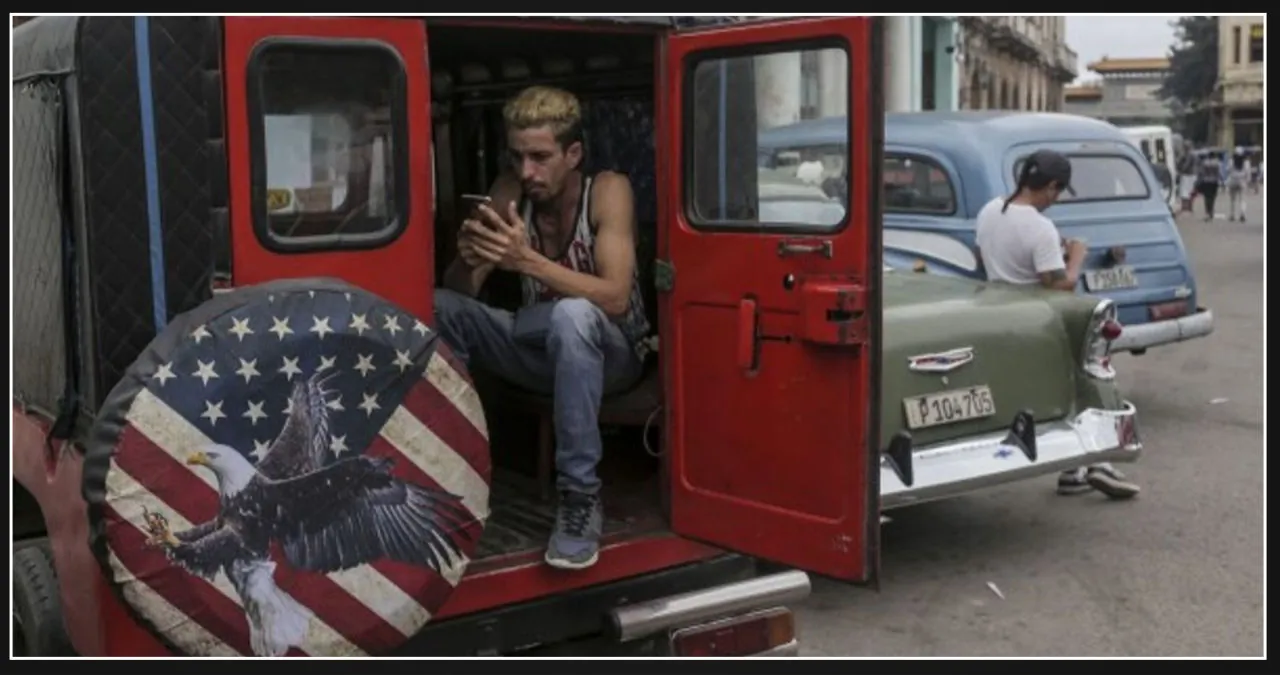Cuba has begun the process of releasing certain prisoners following discussions with the Vatican. This development comes shortly after President Joe Biden’s administration declared its intention to remove the United States’ designation of Cuba as a state sponsor of terrorism.
According to Cuban civil groups monitoring the cases of detainees on the island, more than a dozen individuals who had been convicted of various crimes, including some who were arrested for participating in the historic 2021 protests, were released throughout the day.
Reyna Yacnara Barreto Batista, a 24-year-old tattooist, was one of the individuals who regained their freedom. She had been detained during the 2021 protests and subsequently sentenced to four years in prison on charges of attacks and public disorder. Reyna was released from a prison located in the province of Camagüey. According to her, eight men were also freed at the same time. In an interview with The Associated Press, she shared her experience.
The U.S. government announced on Tuesday that it has informed Congress about plans to remove the designation of Cuba, following a deal brokered by the Vatican. As part of this agreement, Cuban authorities have agreed to release some of the detainees before the end of President Biden’s administration on January 20th.
The Cuban government has informed Pope Francis that they will gradually release 553 convicts in order to explore legal and humanitarian ways to make it happen.
Havana did not connect the release of the prisoners to the U.S. decision on lifting the designation. Instead, they stated that it was done “in the spirit of the Ordinary Jubilee of the year 2025 declared by His Holiness.” This reference is made to the Vatican’s tradition of holding a Jubilee every 25 years, during which Catholic believers undertake pilgrimages to Rome.
Cuba’s Foreign Minister, Bruno Rodríguez, did not make any mention of the release on Wednesday. This aligns with his previous stance, where he indicated that these were separate issues. However, he did bring up the topic of removing Cuba from the list of state sponsors of terrorism.
According to the Associated Press, he stated that while it is possible to remove a country from the list, the negative impact on U.S. foreign policy cannot be reversed. He argues that the list is not an effective tool in combating terrorism, but rather a means of politically pressuring sovereign nations.
By 4 p.m. EST, the Cuban Observatory of Human Rights, a civil group, reported that a total of 18 individuals had been released, among them being Barreto Batista.
Barreto Batista received an unexpected visit at three in the morning. He was abruptly awakened from his sleep in the cell when someone knocked on the door. With a sense of surprise and confusion, he was told to gather all his belongings as he was informed that he was free to go.
According to her, she and the eight men received a warning that the pardon or forgiveness they were granted was conditional. They were informed that they had to maintain good behavior, otherwise, there was a possibility of being sent back to prison.
“I am celebrating with my mother at home,” she happily shared, as the entire family joined in the joyous occasion.”
In July 2021, a large number of Cubans flooded the streets, expressing their discontent over the prevalent power outages and shortages in the midst of a severe economic crisis. The government’s response to the protesters was met with global condemnation, as arrests and detentions were carried out. Meanwhile, Cuban officials attributed the unrest to U.S. sanctions and a media campaign.
According to Justice 11J, a Cuban nongovernmental organization, it was reported in November that 554 individuals were still being held in custody in relation to the protests.
The plan by President-elect Joe Biden to remove Cuba from the list of state sponsors of terrorism is expected to be reversed in the coming week once Donald Trump assumes office and Marco Rubio becomes the Secretary of State.
Marco Rubio, whose family emigrated from Cuba in the 1950s prior to the rise of Fidel Castro’s communist regime, has consistently advocated for imposing sanctions on the island nation.

